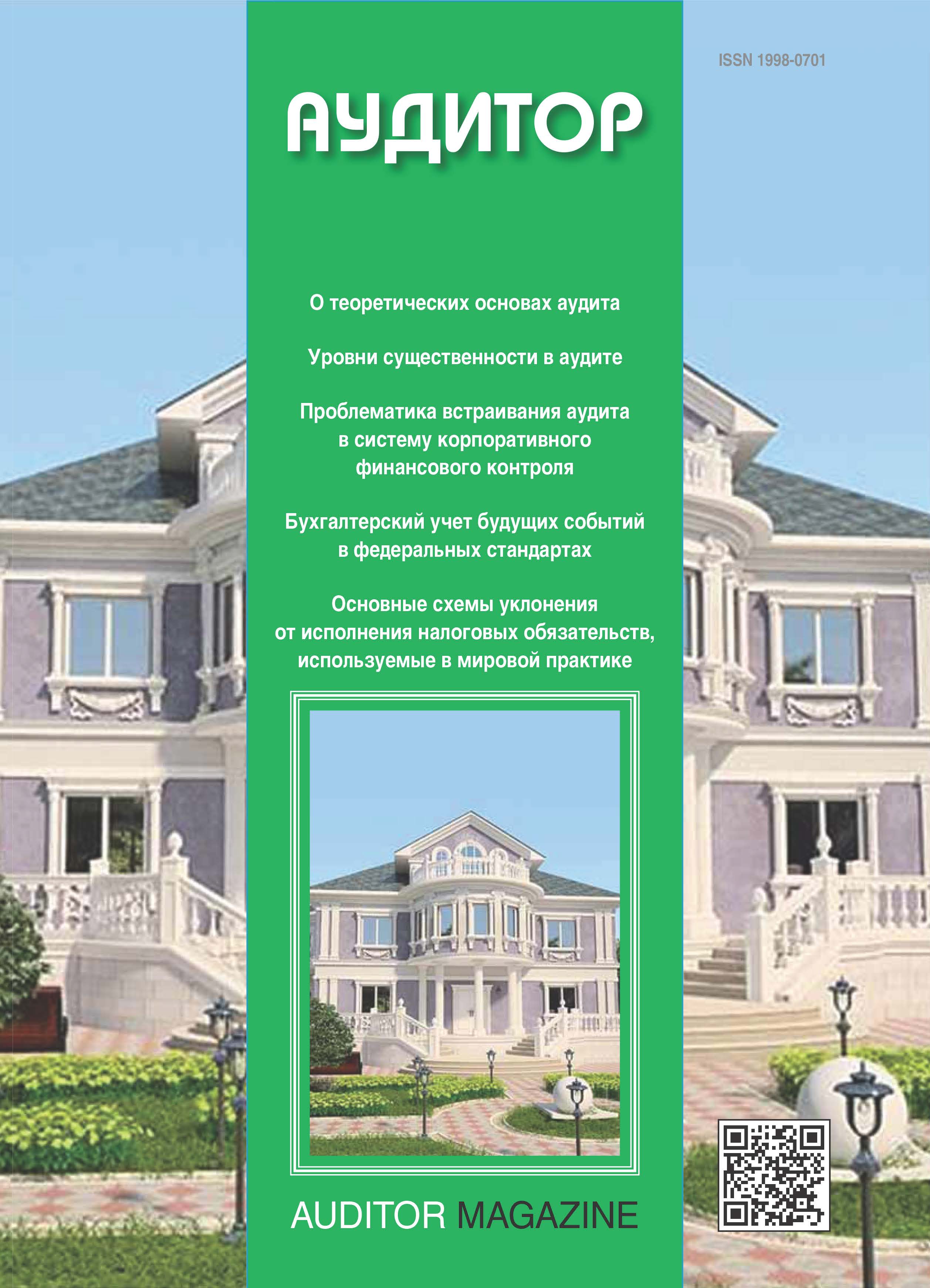Новосибирск, Новосибирская область, Россия
В статье рассматриваются особенности интерпретации энтропии применительно к бухгалтерскому учету с позиций теории и практики, анализируются возможные подходы к оценке энтропии учетной системы и рекомендуемые меры по управлению ее уровнем. При этом обосновывается авторский подход к оценке энтропии с позиции пользователей как потерь информационного содержания финансовой отчетности и целевая функция управления уровнем энтропии как его оптимизация, предполагающая баланс между самоорганизацией, устойчивостью учетной системы и ее творческим потенциалом в решении нестандартных задач в условиях неопределенности.
энтропия, учетная система, информационная теория, неопределенность, антихрупкость.
Проблемами энтропии учетной системы до недавнего времени занимались исключительно исследователи, представляющие англо-саксонскую ветвь бухгалтерской науки.
1. Краснов Г.А., Краснов А.А., Краснов А.А. Порядок и хаос как затратообразующие факторы в процессе принятия управленческих решений [Текст] // Вестник Нижегородского ун-та им. Н.И. Лобачевского. - 2010. - № 3 (1). - С. 262-265. EDN: https://elibrary.ru/MUMIJN
2. Палий В.Ф. Теория бухгалтерского учета: современные проблемы. - М.: Бухгалтерский учет. - 2007. - 88 с.
3. Пятов М.Л. Факты хозяйственной жизни и их отражение в бухгалтерском учете [Электронный ресурс] // Бух.1С. Интернет-ресурс для бухгалтеров. - URL: http://www.buh.ru/document- 920 (дата обращения: 19.12.2017).
4. Соколов Я.В. Проблемы бухгалтерского учета советской торговли в связи с применением новейших средств вычислительной техники: Автореф. дис. ... д-ра экон. наук. - Л., 1973. - 27 с.
5. Талеб Н.Н. Антихрупкость. Как извлечь выгоду из хаоса: пер. с англ. Н. Караева. - М.: КоЛибри, 2016. - 768 с.
6. Шапошников А.А. Классификационные модели в бухгалтерском учете. - М.: Финансы и статистика, 1982. - 144 с. EDN: https://elibrary.ru/YOTEDF
7. Шеннон К.Э. Математическая теория связи // Работы по теории информации и кибернетике. - М.: Издательство иностранной литературы, 1963. - 829 с. - С. 243-332.
8. Abdel-Khalik A.R. The Entropy Law, Accounting Data, and Relevance to Decision-Making // Accounting Review. April 1974. Vol. 49. № 2. Pр. 271-283.
9. Beaver W.H. The information content of annual earnings announcements // Journal of Accounting Research. 1968. Vol. 6. Pp. 67-92.
10. Beaver W., Lambert R., Morse D. The information content of security prices // Journal of Accounting Econometrics. 1980. Vol. 2. Pp. 3-28.
11. Bedford N.M., Baladouni V. A communication theory approach to Accountancy // Accounting Review. 1962. Vol. 37. Pp. 650-659.
12. Bernhardt I., Copland R. Some Problems in Applying an Information Theory Approach to Accounting Aggregation // Journal of Accounting Research. Spring 1970. Vol. 8. № 1. Pp. 95-98.
13. Blinder A.S. Financial Entropy and the Optimality of Over-Regulation Griswold Center for Economic Policy Studies. Working Paper № 242. November 2014. 32 p.
14. Bowen R.M., Burgstahler D., Daley L.A. The incremental information content of accrual versus cash flows // Accounting Review. 1987. Vol. 62. Pp. 723-747.
15. Broadhurst A.R., Darnell D.K. An Introduction to Cybernetics and Information Theory // Quarterly Journal of Speech. 1965. Speech, Vol. XLXI, reprinted in Foundations of Communication Theory, edited by K. K. Sereno and C. D. Mortensen (Harper and Row, 1970). Pp. 6-72.
16. Chambers R.J. Accounting, Evaluation and Economic Behavior. Sydney University Press, 2006. 451 p.
17. Demski J.S. Is accounting an academic discipline? // Accounting Horizons. 2007. Vol. 21. Pp. 153-157.
18. Freeman R.N., Tse S. The multiperiod information content of accounting earnings: Confirmations and contradictions of previous earnings reports // Journal of Accounting Research. 1989. Vol. 27. Pp. 49-79.
19. Landsman W.R., Maydew E.L. Has the information content of quarterly earnings announcements declined in the past three decades? // Journal of Accounting Research. 2002. Vol. 40. Pp. 797-808. EDN: https://elibrary.ru/EFRQEB
20. Lev B. Accounting and Information Theory (Studies in Accounting Research № 2; Sarasota, Florida: The American Accounting Association). 1969. Chapter 2. Pр. 130-147.
21. Lev B. The Aggregation Problem in Financial Statements: Informational Approach // Journal of Accounting Research. Autumn 1968. Vol. 6. № 2. Pр. 247-262.
22. Lev B. The informational approach to aggregation in financial statements: Extensions // Journal of Accounting Research. 1970. Vol. 8. Pp. 78-94.
23. Ross J.F. Information Content of Accounting Reports: An Information Theory Perspective // Information. 2016. № 7 (48). 23 p.
24. Theil H. Economics and Information Theory (North Holland Publishing Co.: Amsterdam, The Netherlands, 1967. Volume 7). 120 p.
25. Theil H. On the Use of Information Theory Concepts in the Analysis of Financial Statements // Management Science. May 1969. Vol. 15. № 9. Pp. 459-480.
26. Waymire G. Additional evidence on the information content of management earnings forecasts // Journal of Accounting Research. 1984. Vol. 22. Pp. 703-718.






